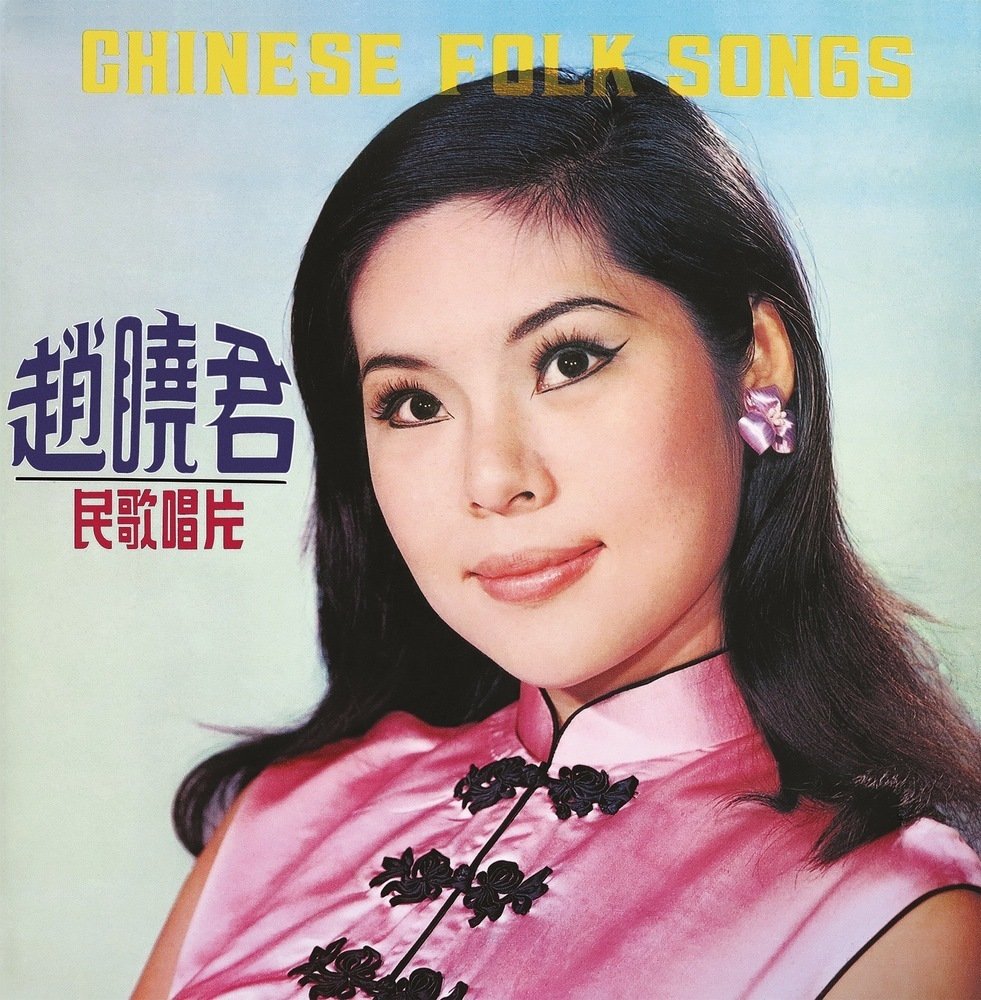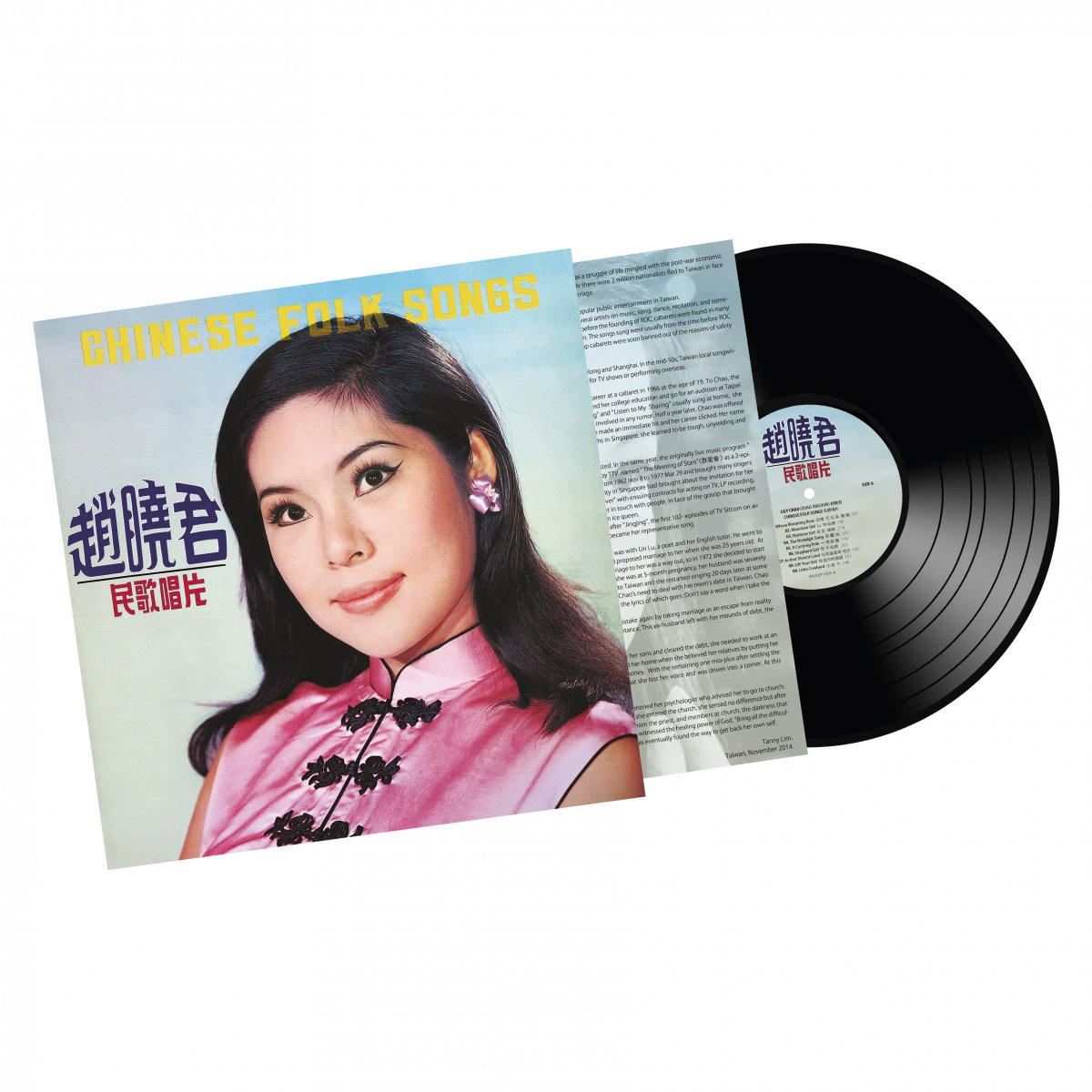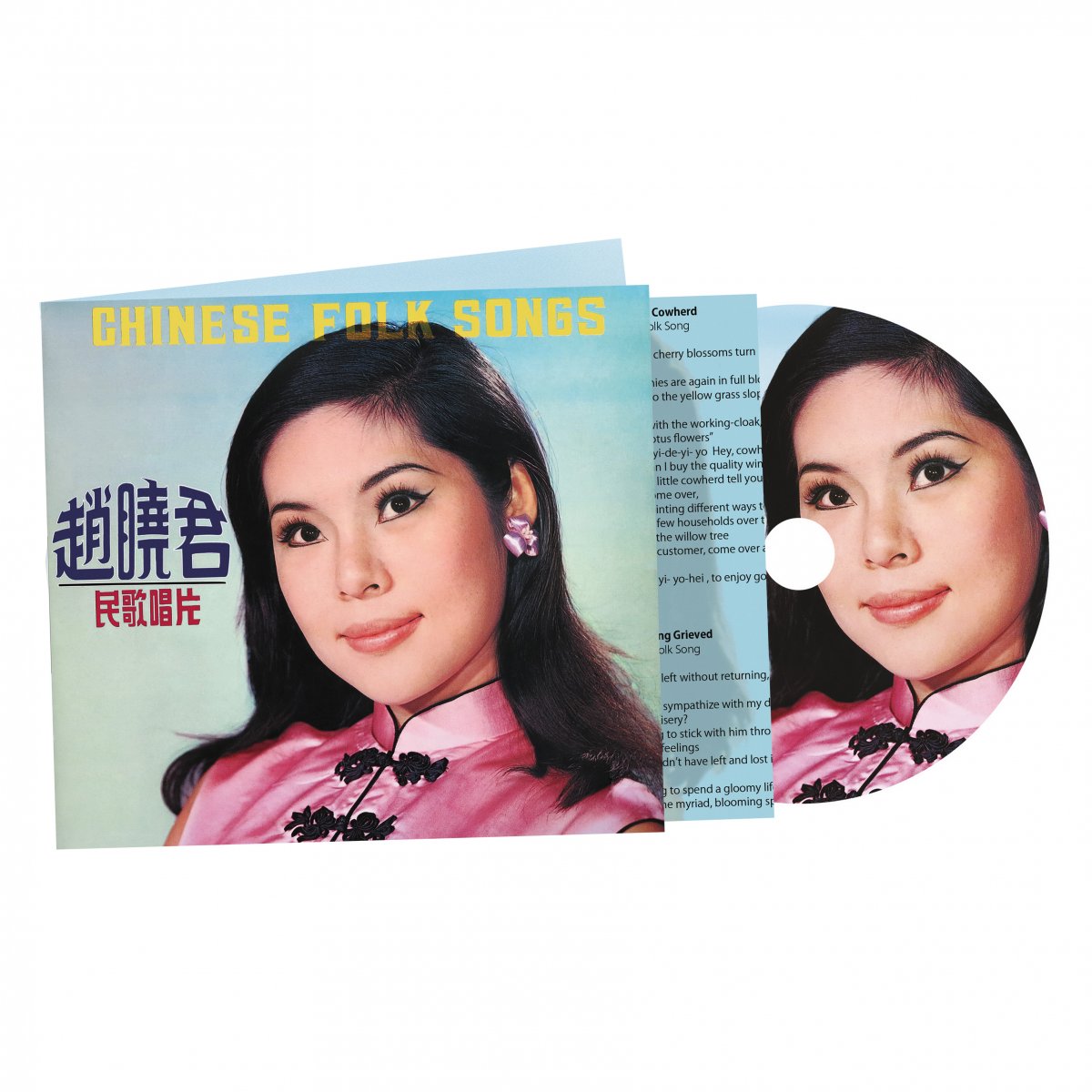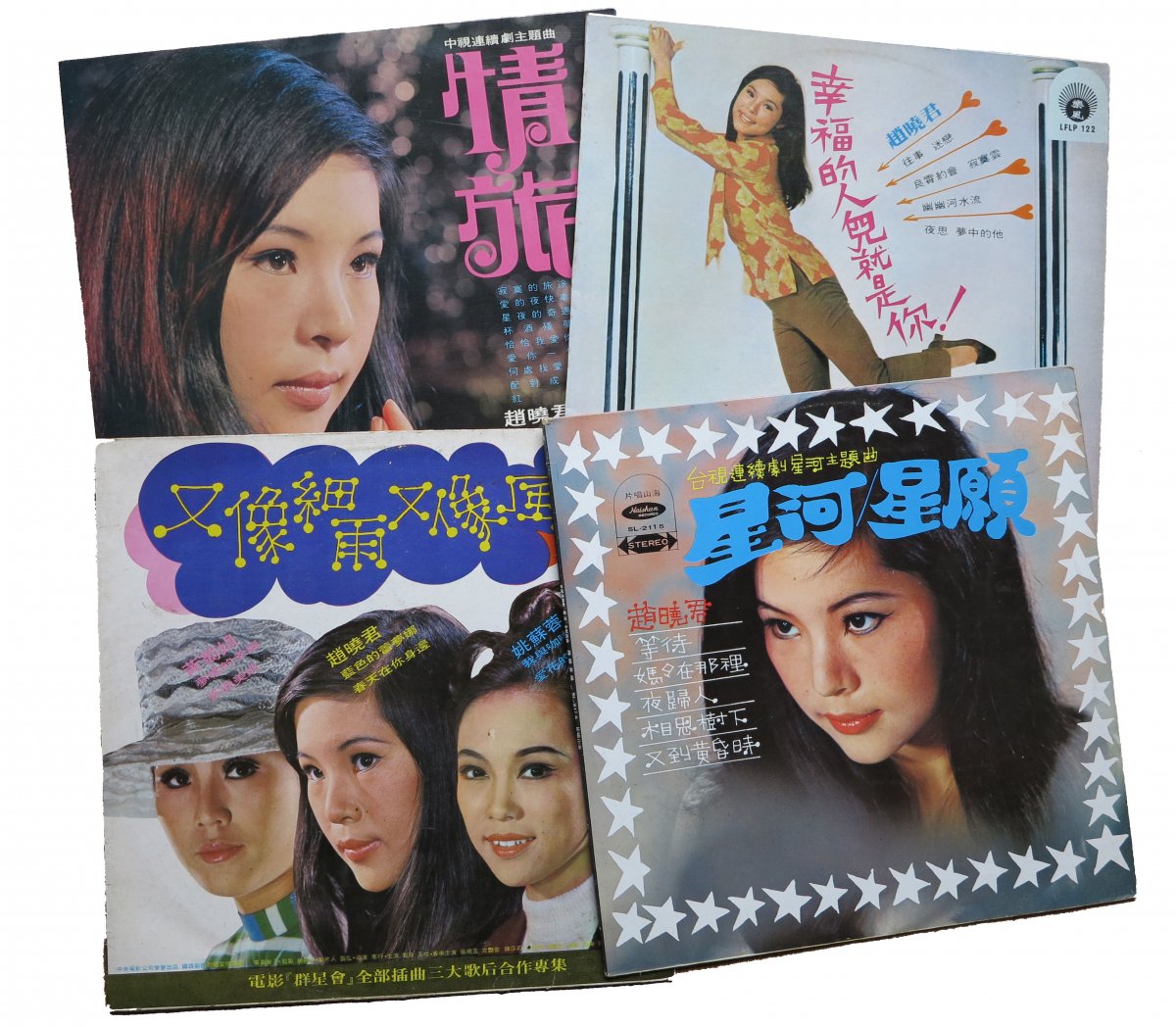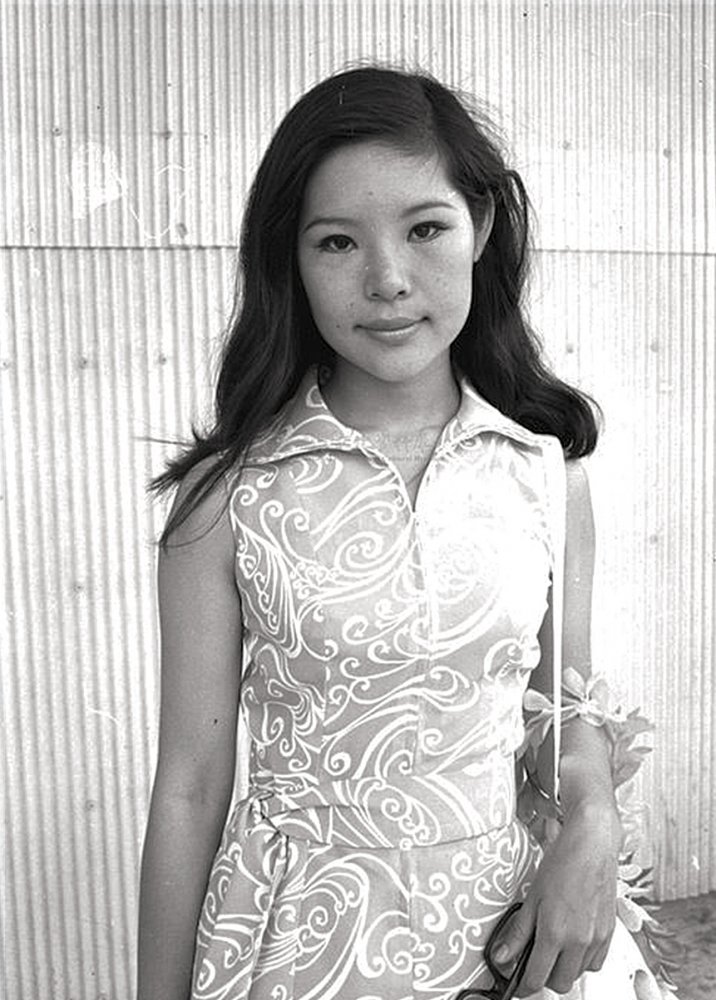Chinese Folk Songs
9,90€ - Buy Digital 11,90€ - Buy CD Buy Vinyl (Sold Out)
«When Chinese folk songs meets rock»
- Expanded reissue of her masterpiece released in 1968
- Includes liner notes with lyrics and biography
- 4 bonus tracks
As the first entry in its catalog, Akuphone presents a reissue of Lily Chao’s Chinese Folk Songs, originally released by Four Seas Records in 1968. This edition includes four previously unheard titles and exclusive liner notes containing Lily Chao’s biography and lyric translations. Chao Xiao-Jun aka Lily Chao was born in Taiwan in 1948, while mainland China was rapidly undergoing major changes immediately following the end of the Chinese Civil War.
After experiencing hard times in her girlhood, she ventured out into singing quite unwillingly. Indeed, at age19, Lily Chao was compelled to give up her studies to support her family and start a career as a singer, after passing an audition at the Taipei Cabaret in Taiwan. The cabaret industry was in full swing at the time, offering destinations for popular entertainment, and Lily Chao’s efforts to launch her singing career immediately attracted producers’ attention. Her appearances at the Taipei Cabaret as part of its shows, which combined music in Mandarin, poetry, drama, magic, and other fine arts, soon earned her a reputation.
Despite the immediate success that her numerous stage performances and appearances on the national television channel won her, Lily Chao led a chaotic and painful private life. As she smiled very little and tended to appear distant, the audience dubbed her the «Ice Queen,» a nickname that she would keep for the rest of her career.
This barely-concealed melancholy can be felt throughout Chinese Folk Songs, as well as in her very particular way of singing, which is both jerky and perfectly fluid. The album stands halfway between Mandarin folk songs and rock singing inspired by The Shadows, all surf guitar and garage sounds recorded with pinpoint precision and enhanced by saxophone and organ touches, while Lily Chao’s intoxicating vibratos bring a pinch of soul to the music.
An outstanding achievement of timeless pop music from the 1960s.
Pour la première référence de son catalogue, Akuphone vous propose une réédition augmentée inédite de l’album Chinese Folk Songs de Lily Chao. Sorti originellement sur Four Seas Records en 1968, cette nouvelle édition offre quatre titres bonus et des liners-notes exclusives, comprenant la biographie de Lily Chao et la traduction des paroles.
C’est dans une Chine en pleine mutation, tout juste au sortir de la guerre civile que naît en 1948 à Taïwan Chao Xiao-Jun alias Lily Chao. Après une enfance difficile, c’est un peu contrainte qu’elle se lance dans la chanson. En effet, à l’âge de 19 ans, Lily Chao se voit dans l’obligation d’arrêter ses études pour subvenir aux besoins de sa famille et entamer une carrière de chanteuse après une audition remportée avec succès au Taipei Cabaret de Taïwan.
Tenter une carrière dans la chanson n’est pas anodin puisque le cabaret, alors en pleine explosion à l’époque, apparaît comme l’endroit de divertissement populaire par excellence et permet aux plus talentueux de s’y faire remarquer. Mêlant à la fois concerts de chansons traditionnelles en mandarin, poésie, théâtre, magie et autres spectacles, ce lieu propice permettra à Lily d’accéder rapidement à la reconnaissance.
Malgré le succès immédiat qu’elle rencontre grâce à ses multiples prestations scéniques et apparitions à la télévision nationale, Lily Chao souffrira d’une vie privée chaotique et douloureuse. Ne souriant que très peu, lui conférant ainsi une attitude très distante, le public s’empresse de la qualifier de « reine de glace ». Surnom qui l’accompagnera tout au long de sa carrière. Cette mélancolie à peine cachée se retrouve tout au long de l’album et dans sa manière de chanter si particulière : à la fois saccadé et fluide. Entre folklore chanté en mandarin et rock inspiré des Shadows, le côté occidental en moins, l’écoute de cet album nous invite au voyage. Tout en guitare surf et garage, toujours sur une rythmique millimétrée, sublimée par des touches de saxophone et d’orgue, Lily déploie ses vibratos enivrants et apporte une touche soul à l’ensemble.
Un sommet original de la pop sixties défiant l’épreuve du temps.
Selected albums from Lily's discography.
Reviews
"Chao’s sadness comes from experience"
While the title makes you think otherwise, something about the portrait of Taiwanese singer Lily Chao on the cover of Chinese Folk Songs tells you that this is not exactly an album of folk music. Maybe it’s the silky pink dress; maybe it’s the look on her face, big eyes gazing upward as she poses for a coquettish glam shot. But the reluctant, barely formed smile seems to reveal the inner life of a woman who didn’t even want to be a singer.
French record label Akuphone introduces this reluctant pop star to Western audiences with a reissue of an album originally released in 1968. The songs indeed have folk sources, from different traditions: “Whose Blooming Rose” is Sichuan; “Mountain Girl,” Little Cowherd” and “Feeling Grieved” are from Taiwan; while “Rainbow Girl” and “Youthful Dance Song” are Xinjiang folk songs. But these traditional songs are given swinging pop arrangements that suggest a variation on Cliff Richard and the Shadows, with sharp guitar lines and moody organ floating over a lilting rhythm section.
Though catchy and charming, the songs draw a melancholy air from Chao’s voice. Still, it’s not all plaintive and wistful. Shouted choruses of “Hey!” and an organ riff that could have come from an American garage band turn “Mountain Girl” into something like a Western movie theme for Swinging Taipei. Its lyrics suggest a melodrama with a happy ending: “Missing the girl, the alpine burly and passionate man/ Marries that girl and leads a happy life.”
Song lyrics seem to present different ideals of the young Taiwanese woman. Chao’s voice gives these a hint of tragedy, as if she’s trapped by the impossibly ideal image of fame. “Rainbow Girl” wraps up this sadness and idealism into one catchy number. She may sing (in translation), “Oh how this sweet affection will hold us together as one,” but her voice suggests an unhappy ending.
“I Smile When I See You” is one of the album’s more up-tempo songs, its swinging rock beat driving lyrics translated as “Your elegant demeanor is just awesome.” Midway through “It’s Vexed to Talk About Love,” she bursts into English, with a surprising rockabilly twang: “Every time I see you coming/ Walking down the street/ Oh I get a funny feelin’/ Then my heart skips a beat.” As the song ends her language breaks down into a crazy-talk blubber, confirming the difficulty of putting the heart’s desires into words.
Chao’s sadness comes from experience. She postponed going to college so she could become a cabaret singer and support her mother in Taiwan. The singer was uncomfortable with fame and the gossip that accompanied it and was known for a cold look that led to her nickname “The Ice Queen.” She married and moved to the United States in the early ‘70s, in part to escape notoriety and a demanding mother. Her husband supported her through school, but when he was severely injured in an accident Chao returned to singing, working so hard that she was back on stage at a late-night club just days after giving birth. That marriage failed, and she returned to Taiwan where another marriage failed. Despite a last-minute attempt to find solace in a higher power, she was too far gone and committed suicide. Chinese Folk Songs is the record of an exotic pop talent; if you listen closely enough, it’s the sound of a tragedy.
by Pat Padua, 09/18/2015, Spectrum Culture.
http://spectrumculture.com/2015/12/10/lily-chao-chinese-folk-songs/
